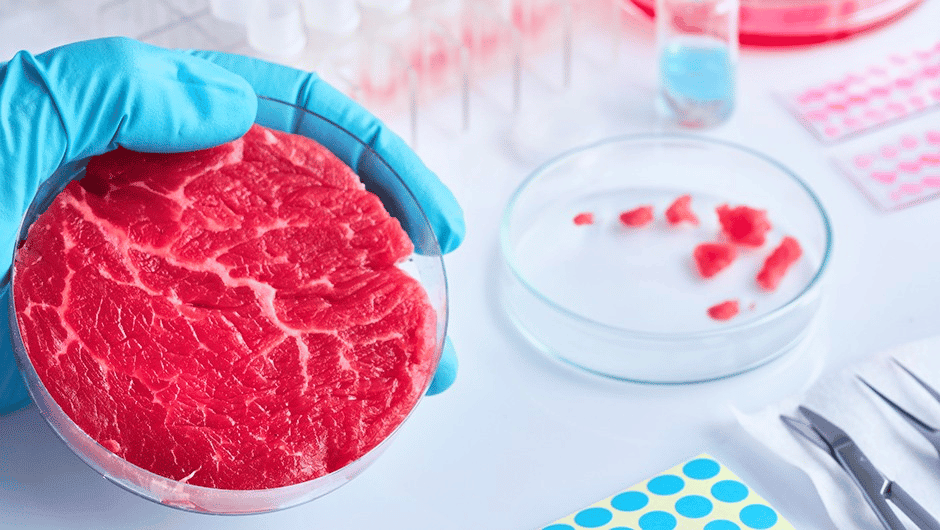According to BBC, the team of Dutch researchers who managed to synthesize the first lab-made hamburger say they hope to start selling the product within five years.
Scientists at Maastricht University in the Netherlands have set up a new company to turn artificial meat into a burger that they say will be tastier and cheaper. "I am confident that when it is offered as an alternative to meat, an increasing number of people will find it difficult not to buy our product for ethical reasons," Peter Verstrate, the director of the new company, told BBC.
Stem cells
The artificial hamburger is made from stem cells, which can develop into tissue in various forms, such as nerves and skin.
Most researchers working with stem cells try to grow human tissue for transplants or to replace diseased muscle tissue, nerve cells, or cartilage. Mark Post, however, uses these cells to grow muscle and fat to make artificial hamburgers. The process begins with stem cells taken from the muscle of a cow. In the lab, these cells are placed in a culture - a solution - with nutrients and chemicals that promote their enlargement to help them grow and multiply. Three weeks later, the scientists already have more than a million stem cells, divided and placed in smaller containers. The already grown cells turn into tiny strips of muscle about a centimeter long and only a few millimeters thick.
The small strips are then collected and put together in small mounds, colored, and mixed with fat. The burger resulting from this process was prepared and tasted at a press conference in London two years ago.
One food expert who tasted the delicacy said the taste was "close to meat, but not as juicy," but another said it tasted like a real hamburger.
Dutch at the forefront of plant protein.
There are already more than 60 companies and research institutions in the Netherlands that have focused on the production of vegetable-based proteins, such as The Vegetarian Butcher, acquired four years ago by the giant Unilever. Also Upfield, owner of the vegan cheese company Violife, along with plant-based spreads such as I Can't Believe It's Not Butter, announced in the summer of 2020 that it would invest 50 million euros (US $58.1 million) in a Food Science Center focused on the future of plant-based foods.
"The Upfield Food Science Centre", located in the Dutch city of Wageningen, which houses Wageningen University and Research, a giant in agri-food research and ranked as one of the best agricultural universities in the world, is under construction and is expected to open its
doors later in 2022. The campus includes the former agricultural research institutes of the Dutch Ministry of Agriculture, and is the only Dutch university focusing specifically on healthy food and living environment. It is also part of the Food Valley, a region of the Netherlands where so many food companies and research centers for agricultural innovation are located in the so-called Silicon Valley of food.
Portuguese ready to embrace sustainable food
According to Associação Vegetariana Portuguesa (AVP), the Portuguese are ready to
reduce meat consumption and pay more for sustainable production. In Portugal, a country where meat and fish are traditionally eaten, a growing number of people are willing to reduce their meat consumption. According to data collected by the II Great Sustainability Survey in Portugal, conducted by Luísa Schmidt and Mónica Truninger, researchers at the Institute of Social Sciences (ICS) of the University of Lisbon, more than half (50.6%) of the participants showed a predisposition to reduce meat consumption and to adopt a plant-based diet (45.1%).
Vegetable
proteins have become more popular recently, and here, it is no exception. Currently, it is possible to find several vegan options both in supermarkets, specialty stores and also in restaurants such as
Organi Chiado, where menus are variable daily, in accordance with the environment and time of year.
